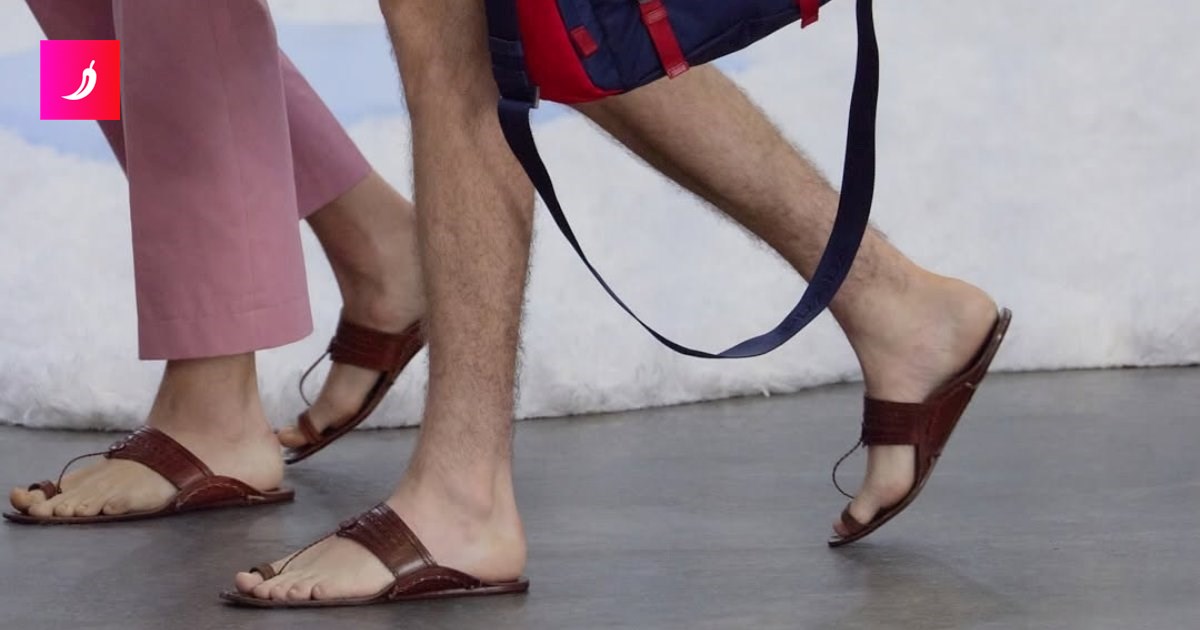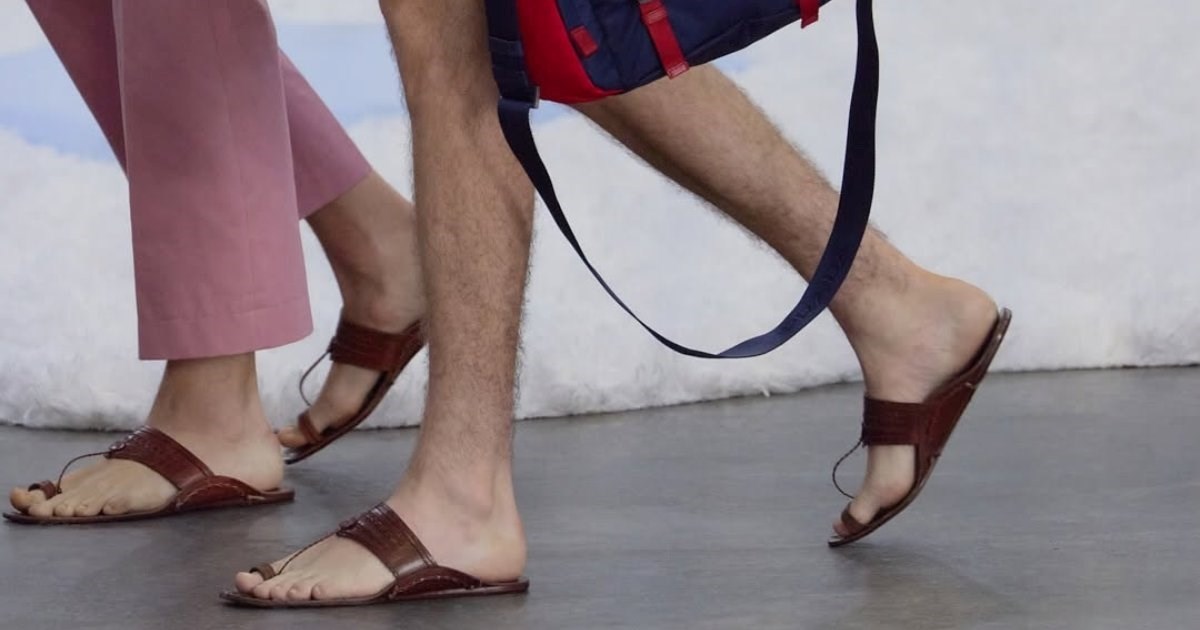Prada and Kolhapuri: Cultural Appropriation or Fashion Scandal of the Year?
Have you heard about the latest fashion scandal that has set India on fire? Prada, one of the world’s most famous fashion brands, is under fire for its new leather sandals that are, wait for it, almost identical to traditional Indian Kolhapuri sandals! Yes, you read that right – sandals that are part of India’s cultural heritage since the 12th century, handmade in the city of Kolhapur in Maharashtra, are now being sold under Prada’s name for hundreds of euros, while in India they cost just about ten euros.
What’s the problem?
Indian artisans and producers are furious! And rightly so. Prada admitted that their design was inspired by Kolhapuri sandals but failed to give any credit or involve local producers. This is a classic case of cultural appropriation – when global brands take traditional designs and local craftsmen lose out.
Harsh Goenka, chairman of the RPG group, bluntly states: “Indian artisans lose, while global brands profit from our culture.” He’s not alone – Dhanendra Kumar, former World Bank executive, points out that small producers in India rarely have access to capital or business knowledge, making their situation even tougher.
Prada’s defense, but…
Although Prada did not name their sandals “Kolhapuri,” which might have softened accusations, it didn’t stop a wave of criticism in India. Photos of models on the Milan runway wearing sandals almost identical to original Kolhapuri sandals sparked outrage. But could this controversy have a silver lining? Local designers believe the extra attention might revive interest in Kolhapuri sandals, especially among younger consumers in India.
Google Trends shows a spike in searches for Kolhapuri sandals, and merchants report increased demand. Maybe this scandal will help traditional producers reclaim their market.
Why should we care?
This case is not just about sandals. It’s about power, justice, and respect. When global giants take from local communities without recognition or compensation, it’s not just unfair – it’s cultural theft. While Prada can sell sandals for hundreds of euros, Indian artisans remain in the shadows, struggling to preserve their tradition.
The bottom line?
Prada might just be the tip of the iceberg in a fashion world rife with cultural appropriation. But this case is a loud warning: it’s time to respect roots and support local communities, not exploit them.
What do you think about this fashion scandal? Is Prada just inspired or shamelessly stealing? Drop your thoughts – maybe together we can unravel this fashion mess!
Slug: prada-cultural-appropriation-kolhapuri-sandals





















